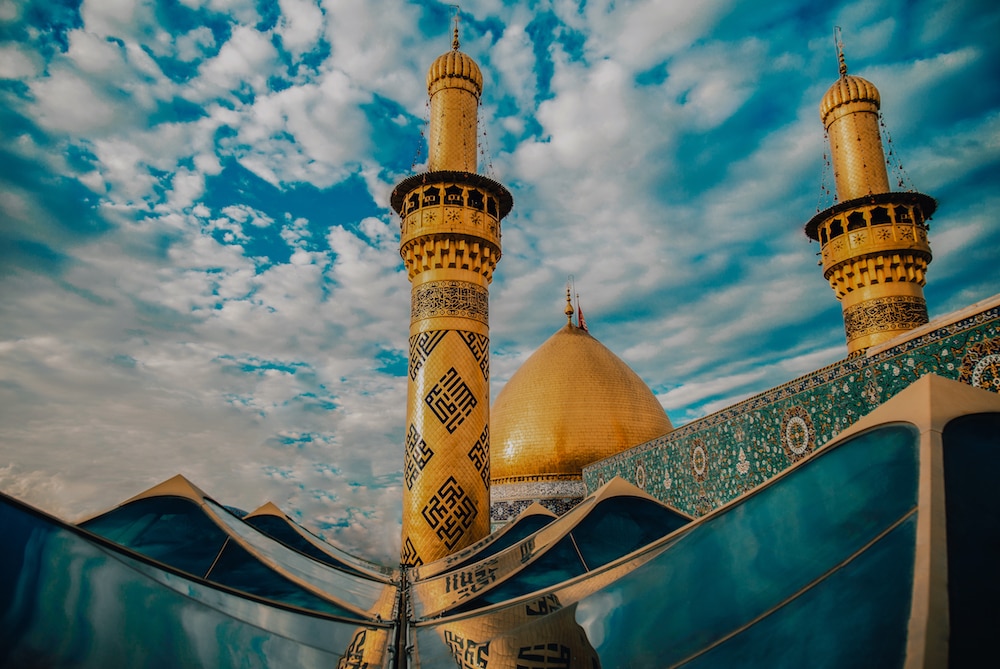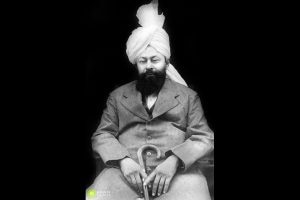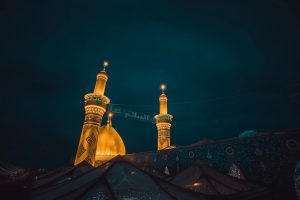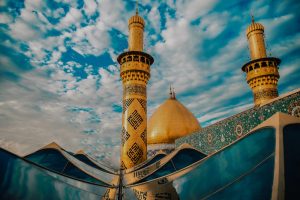
Sarmad Naveed, Canada
When you think New Years, you usually think of celebrations.
It could be watching the ball drop in New York City on January 1st, lighting firecrackers and the Lantern Festival for Chinese New Year, festive meals for Rosh Hashanah, or celebratory dances and gift exchanges for Nowruz. Whatever the tradition, New Year’s is generally synonymous with festivities and greetings of ‘Happy New Year!’
When it comes to the Islamic New Year, things are a bit different.
Muharram is Islam’s January – in other words, the lunar month of Muharram marks the beginning of a new year in the Islamic calendar. But New Years in the Islamic tradition isn’t celebrated like it is in other traditions with merriment and enjoyment. In fact, the month of Muharram marks a very solemn and pensive time for Muslims.
It signifies perhaps one of the most unfortunate moments in the history of Islam as the grandson and other family members of the Holy Prophet of Islam, Muhammad (sa) were the victims of grave cruelties.
The Fifth Caliph and Worldwide Head of the Ahmadiyya Muslims Community, His Holiness, Hazrat Mirza Masroor Ahmad (aba) explains:
‘With reference to the month of Muharram, which we are currently passing through, I would like to draw attention towards prayers. This was an extremely tragic incident that took place in which cruelty and injustice reached their utmost limits. The Holy Prophet’s (sa) grandson and other members of his family were martyred.’[1]
Hazrat Hussain (ra), beloved grandson of the Holy Prophet Muhammad (sa) stood up for his faith and its true teachings, and in doing so decided not to accept the tyrannical rule of Yazid – who assumed Muslim leadership from his father Amir Muawiyah who had erroneously claimed to be a Caliph. This resulted in the merciless and horrendous martyrdom of Hazrat Hussain (ra) along with other members of the Holy Prophet’s (sa) family. To this day, Muslims around the world mourn these atrocities which took place at the battle of Karbala; some hold gatherings to recount those events while others conduct processions while physically harming themselves to re-enact the pain felt by those pious souls at Karbala.
But in reality, the true teachings of Islam do not condone such outwards expressions of lamenting and mourning. Instead, commemorating those tragic events according to the true teachings of Islam requires that we learn from the incidents of Karbala, as His Holiness, Hazrat Mirza Masroor Ahmad (aba) explains:
‘If the month of Muharram teaches us any lesson, then that is for one to always send Durood [special prayer that invokes blessings upon the Holy Prophet (sa) and his followers] upon the Holy Prophet (sa) and his family. In order to fulfil our duties towards the grand objectives set out by the Imam of the age [the Promised Messiah, Hazrat Mirza Ghulam Ahmad (as)], we must strive to send prayers upon the Holy Prophet (sa), occupy ourselves in prayers and try our utmost to bring about a pure change within ourselves. At the same time we must demonstrate steadfastness when faced with adversaries which bear the characteristics of Yazid’[2]
So, although the Islamic New Year isn’t a time for celebration, it’s a time for self-reflection and improvement, and an opportunity to increase in love and devotion for the Holy Prophet (sa) and those closest to him. Even more so, rather than using the divisive events of Karbala which completely contradict Islam’s beautiful teachings to perpetuate sectarian violence even today, those events serve as a learning opportunity for all Muslims, as His Holiness (aba) enlightens:
‘If we possess true understanding, then we must not regard Muharram as a month for merely expressing sorrow or venting our anger, malice and rancour, nor should we make it a mere means of expressing our emotions. Instead, we should make this a month of expressing love and affection for one another. We must follow the one who has been appointed as the Judge and Just Arbiter [the Promised Messiah, Hazrat Mirza Ghulam Ahmad (as)] in this present age by the Allah the Almighty for our guidance. It is only then that we can be regarded as true Muslims and lead the world.’[3]
About the Author: Sarmad Naveed is an Imam of the Ahmadiyya Muslim Community who graduated from the Ahmadiyya Institute for Languages and Theology in Canada. He serves as Online Editor and is on the Editorial Board for The Review of Religions, and also coordinates the Facts from Fiction section. He has also appeared as a panelist and host of programmes on Muslim Television Ahmadiyya (MTA) such as ‘Ahmadiyyat: Roots to Branches.’
ENDNOTES
[1] Friday Sermon – 12 July 2024
[2] Friday Sermon – 10 December 2010
[3] Friday Sermon – 28 August 2020




Add Comment